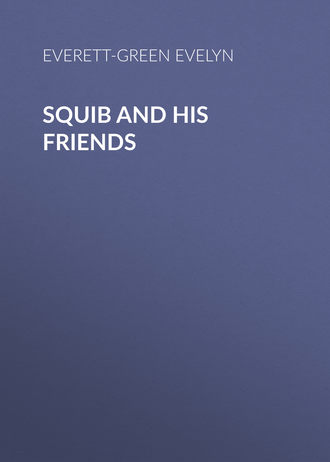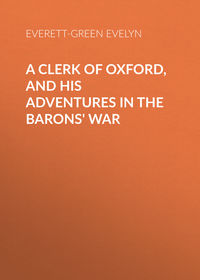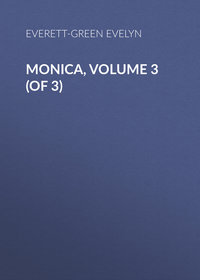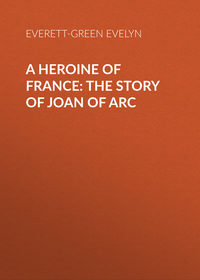 полная версия
полная версияSquib and His Friends

Evelyn Everett-Green
Squib and His Friends
CHAPTER I.
“THE ODD ONE.”
That was the name Squib went by in the nursery and in the household – “the odd one.” Not exactly because of any personal peculiarities – although he had a few of these – but because he had no especial brother or sister belonging to him, and seemed to stand alone, whilst all the others could be paired off together.
Norman and Frank were big boys, away at school most of the year, near to each other in age, and always together in the holidays. Philippa and Molly came next, and were girls, devoted to each other and to their family of dolls, and even more devoted to the live dolls in the nursery – the little twin sisters, Hilda and Hulda, whom nobody knew apart save themselves and the nurse. But Squib had no brother or sister to be bracketed with him. The baby who came next in age to him had died in infancy, and was only a dim memory to the brother just above him in age. So he had always been, as it were, “the odd one” of the family, although his sisters were very fond of him, and never refused him a share in their games when he wanted to join in them.
But Squib did not care for dolls, and his tastes lay amongst things beyond the walls of nursery or schoolroom. He wanted always to be out of doors when not busy with his lessons for Mademoiselle (for so far he had not gone to school, but had been taught with his sisters in the schoolroom); and his pursuits were not of a kind to be attractive to the dainty little ladies, Philippa and Molly, or to find favour in the eyes of nurse, who reigned supreme over Hilda and Hulda. So Squib got into the way of amusing himself in his own fashion, and took his name of “the odd one” with great equanimity.
Squib was not his real name, as I suppose I need hardly say; it was a nickname given him by his father some years before my story begins, and it had stuck to him ever since. His real name was Sydenham, and he had been called Syd for a time, till Colonel Rutland had hit upon this other appellation.
And the reason for this was a habit of Squib’s which amused his father a good deal. The child had a way of sitting perfectly still and silent for a very long time in the room, not speaking, even when spoken to, until some exhaustive mental process had taken place, after which he would suddenly “go off,” as his father expressed it, and talk rapidly and eagerly for several minutes straight on end; then having thus relieved his mind and delivered himself of his thoughts, he would relapse into dead silence until ready for the next explosion. And so his father called him “Squib;” and Squib he became in time to the whole household.
It was commonly whispered about the place that Squib was the Colonel’s favourite amongst his children. Colonel Rutland was not a man who had taken a great deal of notice of his sons and daughters as they appeared upon the scene. He was a busy man, having a large estate to order, being a magistrate, churchwarden, and guardian of the poor-law, and having social duties to attend to as well. He was a most devoted husband; and people used to say that never was there a happier couple than he and Lady Mary, his beautiful wife. He was proud of his fine young family in the aggregate, but did not notice the children very much individually, until one or two small incidents brought Squib before his eyes.
The first of these was a severe altercation which he chanced to overhear between the child and his nurse when Squib was five years old. He was walking through the shrubberies one morning when the sound of raised voices attracted his attention, the first being that of a child lifted in indignant protest.
“It’s not a lie. I never tell lies! I did hear father sing it his own self!”
“Master Syd, that’s not true. Your father never would sing such a wicked song. It only makes it worse, telling stories about it!”
“It isn’t a story! – it isn’t, I tell you! I heard him my own self, and lots of other people heard him, too. It’s you who are wicked, saying I tell lies and father sings wicked songs!” and the crunch of the gravel betrayed the fact that Squib had brought his small foot heavily down upon it in a stamp of passionate wrath.
Colonel Rutland turned a corner and came full upon the combatants. The nurse – a most excellent and trustworthy woman, who had been for twelve years with them – was looking very grieved and disturbed as she held Squib by the hand, as if with the intention of taking him at once before some domestic tribunal; whilst the child’s square, determined face was flushed a deep crimson, his dark-grey eyes looked almost black, as they had a way of doing in moments of passion and excitement, and his whole frame was quivering with anger and protest as he reiterated his assertion that he was speaking nothing but the truth.
“What is all this?” asked Colonel Rutland in a deep voice. “Squib, what do you mean by resisting your nurse like that? I will have no insubordination to authority in my house – you know that as well as I do.” For Colonel Rutland, with his military training, was a martinet in his house about discipline, and his children knew perfectly that he would be more severe over an act of disobedience than over any other kind of transgression.
Squib and the nurse both started at the sound of the Colonel’s voice, and nurse dropped the hand she was holding and made a respectful courtesy to her master. Squib stood perfectly silent, after his fashion, for a full minute, and then burst into rapid speech, —
“I wasn’t resisting her, father. She told me I was telling lies – and I’m not. You did sing it. I heard you; and it isn’t wicked – and she didn’t ought to say it was. I don’t tell lies. I never did. It isn’t lies – it’s only about them!”
The Colonel held up his hand to command silence.
“What does all this mean?” he asked, turning to nurse.
“If you please, sir, I heard Master Syd singing something that didn’t sound right for a young gentleman, and when I told him I wouldn’t have wicked words sung, he turned and said that he’d heard you sing them, which I was quite sure was not true, and I told him so. And then he went off into one of his tantrums – which I hoped he was learning to get better of – and that’s all I know about it. But I am quite sure he is not speaking the truth.”
“Leave him to me and I will get at the rights of the matter,” said the Colonel; and nurse, who had an ailing baby indoors (Squib’s little brother who shortly afterwards died), was glad to go in to see after him, leaving Squib and his father to settle things together about the song.
“Now, Squib,” said Colonel Rutland, with grave severity of manner, “let me hear the whole truth of this from you. What is it you were singing? Don’t be afraid to speak the truth.”
“I’m not afraid a bit!” cried Squib, after his habitual pause. “I’ll sing it to you now. You’ll know it – it’s your own song,” and taking a deep breath and swelling himself out in unconscious imitation of a singer about to commence his song, the child broke out with the following words, sung in a deep voice as like that of a man as he could achieve —
“Fi-ive del dies —The father of lies!”And then suddenly breaking off he looked up at his father and cried, —
“You know you did sing it yourself, father – so it can’t be wicked!”
The Colonel was puzzled. There was something in the rhythm of the notes that was familiar to him; but what could the child mean? How had he got hold of those absurd words, and what was in his head?
“When did you hear me sing it, Squib?” he asked, still not permitting his face to relax.
“Why, father – you know – when all those people came, and you read such a lot of funny things in turn in the drawing-room and sang songs. There was another song about ‘Ban, ban, Ca-Caliban’ – you must remember; but it was you who sang about the father of lies, and it can’t be wicked if you did it, though nurse does say so!”
Colonel Rutland broke into a sudden laugh. The whole thing flashed across him now. From time to time in that neighbourhood there were gatherings generally known by the name of “Shakespeare readings” – friends meeting together at one another’s houses to read a play of the great dramatist’s, the parts being allotted by previous arrangement. Not very long since “The Tempest” had been read in this way at Rutland Chase, and the children had been allowed to come into the room for part of it. It was just the kind of thing to fascinate Squib, and perhaps he had succeeded in hiding away and being up longer than was known. At any rate, he had evidently heard his father sing the well-known song —
“Full fathom five,Thy father lies;”and, with the capricious alchemy of a child’s mind over anything not understood, had transformed it to the version which had aroused the ire of his nurse.
Something in this little incident tickled the fancy of the Colonel and attracted his attention towards Squib, who had always amused him when he had had time to notice his children; and the bond was more closely drawn between them by two little incidents which occurred, one after the other, during the ensuing year.
The first of these had reference to a very fine Russian wolf-hound, which had been presented to Colonel Rutland a short time before. It was an animal almost as big as a calf, of a slate colour merging almost in black, with a head very broad across the brows, and a voice like a church bell. He was a very magnificent animal, but he had a fierce temper, and made few friends. Colonel Rutland was one of these few, but even he did not feel that he had the dog very well under control, and always took him out with a certain sense of misgiving.
One of the chief difficulties with regard to the creature was that he was so fierce when chained up that it was hardly safe to approach him, either to give him his food or to let him loose when the time for his daily run had arrived. Colonel Rutland was having a place made for him where he could be shut up without being chained, which he hoped would tend to the humanizing and taming of him; but, meantime, he had to be fastened up in the yard when not at large, and Colonel Rutland made a point of both chaining and loosing him himself – although it was not without misgiving that he approached the great brute straining on his chain, and glaring out at the world with red, defiant eyes.
One day, as he was approaching the kennel, liking the looks of the dog rather less even than usual, he stood meditating at a short distance as to whether it were really safe to keep such a fierce animal on the premises, and whether he might not be running a foolish risk in going near him. He was startled by the sound of a small voice proceeding from an invisible questioner quite near at hand.
“Father,” said the little voice, “shall I let Czar out for you?”
Colonel Rutland looked up, and looked down, and looked round about him, and again came the sound of the small voice, saying, —
“I’m in Czar’s kennel, father.”
The Colonel had certainly never thought of looking in such a place for the speaker. Now, turning his startled glance in that direction, he saw Squib sitting curled up on the clean straw in the huge kennel, looking out from his nest with a friendly smile.
For a moment the fathers heart stood still. Suppose the great brute should turn and see him! It was with difficulty he commanded his voice to say quietly, whilst himself striving to attract the notice of the dog, “Come out, Squib; come very quietly.”
But the child never heard the last words; he jumped up at once and made an outward bound, flinging himself upon the dog as he did so, and throwing his arms about his neck.
“Oh, father, if you would only let me have Czar to go out with me sometimes! We should have such fun together!”
At the touch of those small childish hands the aspect of the dog changed at once. The lifted crest along his back smoothed down, the red light in his eyes changed altogether, the fierce bay ceased, for the creature was engaged in licking the child’s hands and face, and in fondling him with evident delight. The father looked on in amaze, and when Squib repeated his question, “Shall I let him out now?” he gave his assent rather by sign than by word, so great was his surprise at what he saw.
“Oh, father, may I go with you?” pleaded Squib, with great, wistful eyes. “I’ve never been out with Czar yet – and I should so like to!”
His father held out a ready hand.
“Come along, my little man. We will go together. How came you and Czar to be such friends? I did not know he had made real friends with anybody yet.”
Squib did not immediately answer; he was watching the gambols of the great dog careering round and round them in wide circles – a thing he had never done before when out with Colonel Rutland, always making a rush ahead, and only coming reluctantly to his side when called with authority. Whenever Squib held out his hand, Czar made a dash at him and licked it; and once the child jumped upon the great creature’s back, and Czar took him for a breathless scamper across the park – Squib holding on like a little monkey; and only when he had come back and was holding his father’s hand again did he “go off,” and enter into explanations of this strange friendship.
“You see, father, it was like this – Czar had nobody to love him. They were all afraid of him. I saw coachman give him his supper one day – he had the stable broom, and he pushed the pan to Czar with it, and never even gave him a pat, or said a kind word to him. And it did seem so hard! So when he was gone I just went up and patted him as he was eating his great bones, and then I sat just inside his kennel and talked to him all the time, and made it sociable for him; and he brought me the biggest bone of all, and I pretended I liked it very much, and then I gave it him back and he lay down and ate it, and I stroked him and talked to him all the time. He is such an interesting dog to talk to when you know him. And after that I went every day, and – when I can – I give him his food, and we always have a great deal of conversation, and it isn’t nearly so dull for him as it was at first. But I’ve never been able to go out with him, because coachman says I mustn’t loose him. But we’ve always longed to take walks together, and if you say we may, it will be so nice.”
Colonel Rutland listened to all this with something of a shiver. He had not lived all this while without having known many instances of the wonderful understanding between children and animals, or of the forbearance shown often by the fiercest creatures to confiding little children; but, nevertheless, he could not picture the first approach of his small son to that great fierce dog in the midst of his bones without a tremor of thankful relief. Now it was abundantly evident that an excellent understanding existed between them, for Czar would come at the least sound of Squib’s voice, and, when bidden to do so, would walk just behind him with docile submissiveness. The conquest made by the little boy, quite unconscious of conquest, was complete, and never had the Colonel felt so secure of training the dog and humanizing him as he did that day.
“If I let you take Czar out into the park every day for an hour, Squib,” he said presently, “do you think you can teach him to be more gentle and obedient?”
“Oh, father, I think I can,” answered the child with brightening eyes. “I’ll explain everything to him so carefully – about being obedient and all that. I think he wants to be good – only he’s got nobody to teach him and be good to him. But I should like to teach him. I’m sure he has a very good heart, and he understands what I say, I’m quite sure.”
So the experiment was tried, and with signal success. The fierce dog became gradually tamed and dependable, and a fresh link was formed between Squib and his father.
Later on in the same year another incident occurred which increased the Colonel’s interest in “the odd one” of the family.
Like most country gentlemen of some leisure, Colonel Rutland was fond of hunting, although he could not give the time to it that some of his friends were able to do. Still, he had always one, and sometimes two hunters in his stable, and at this time, when Squib was just six years old, his favourite was a horse of the name of Charger, upon whom he had hunted three seasons in succession.
Charger had something of a history of his own with which Squib was not unconnected. Three years before, when the horse was five, and Squib three, the former had been brought up for Colonel Rutland’s inspection, as the owner desired to sell him. He was then only just broken, for he had done no work as yet, the farmer who owned him having wished to let him run as long as possible, and then to sell him to some of the gentry as a hunter and weight-carrier. He was a very beautiful creature, with a grand shoulder and very strong hind-quarters, legs as sound and fine as the huntsman himself could wish to see, and a well-turned head and gentle eye. The Colonel and his wife and some of the children all assembled at the front-door to examine and look at the horse, who stood pawing the gravel, seeming as if he knew perfectly the commotion his beauty and strength were exciting. There were several guests in the house who knew something about horses, and a great deal of conversation was going on after the animal had been walked, and trotted fast, his hoofs examined, and his eyes well peered into. He was growing rather restive now with all the waiting and testing, but was standing pretty quietly, held by the farmer, when suddenly little Squib, who was always very fond of animals, and seemed not to know the meaning of fear, ran forward from the group about his mother, and clasped his arms tightly round the hind leg of the young horse, laying his cheek against it with that caressing movement so common in little children.
A sudden hush fell upon the whole group – every man among them afraid to move or speak lest the horse should be frightened and kick out, as it seemed impossible that he should not do at that strange touch upon his leg. But the creature turned his head round, looked at the little, white clinging figure, and stood perfectly quiet under the unwonted caress. The next moment the Colonel had caught up his daring little son, and one of the gentlemen standing by said to the farmer with a short laugh, —
“I think you may take the horse round to the stables now; he has won himself a home here, or I am much mistaken.”
So Charger stayed, and never a horse was better worth his money, as the Colonel often said. He was so gentle that Lady Mary herself sometimes rode to hounds upon him by her husband’s side, and so strong and clever and enduring that the Colonel could have sold him for almost any money in his own county if he had wished to part with him.
As for Squib, although he did not long remember the exploit of which he had been guilty that day, the story was often told in his hearing, and it seemed to make a bond between him and Charger which was closer than between him and any other horse, although the child was fond of them all. He was fonder of Charger than of his own little Shetland pony, although Shag was a great friend and favourite. But Charger was so sensible, so kind, so friendly, and so big! There is always an attraction to a boy of native courage in the sensation of being mounted on a big horse. Often and often, when the great hunter was saddled and about to be brought round to the door, Squib would plead to be allowed to ride round upon him, and though on these occasions coachman himself would take the bridle and not permit any one else to superintend the child’s feat, it was accomplished again and again without any danger; for Squib had ridden his own pony bare-backed from the time he could get his small legs across the broad back, and was a veritable monkey for sticking on the back of anything with four legs.
But during this particular autumn, when Squib passed his sixth birthday, and Charger was “rising nine” as coachman called it, one of those sad mischances befell him which are unfortunately only too common with good hunters. He was carrying his master in his own gallant fashion over some very slippery, sticky ground, when, in alighting after a fine leap, he came down upon a treacherous bit of ground where the foothold was very bad. With an effort which seemed to imply that he was thinking first of his rider’s safety and second of his own, he avoided the fall which seemed for a moment inevitable, but he slipped badly and only recovered himself after a violent struggle. Colonel Rutland sprang safely to the ground and helped the gallant animal to get a better footing; but all this was not accomplished before Charger’s shoulder was badly strained, and he had to be laid up in a loose box and carefully doctored for many months before any one could think of riding him again.
Squib was constant in his attentions to the disabled favourite all that time, and he and Charger and Czar spent many a happy morning in the paddock together, where Charger was turned out for an hour or two on warm days “to exercise hisself” as the groom called it. Squib also made great friends with the veterinary surgeon who attended Charger, and who would tell him stories of animals by the hour together; and it was from him that Squib first heard the bad news about the poor hunter.
“He won’t never be good for hunting again, nor for that matter for riding either. That shoulder will always be weak. He might drop on it any time sudden like, and nobody cares to ride a horse like that. The only thing now is to break him for harness if it can be done; but he’s old to take to collar-work – more likely it’ll just break his heart instead, poor fellow!”
The tears rose in Squib’s eyes as he heard these words.
“They shan’t break Charger’s heart!” he cried indignantly. “I’m sure my father will never allow it.”
“Well, sir, I hope not, for I don’t think that horse’ll ever break, for all he’s so gentle and quiet. He’s got a spirit of his own, he has; and when a creature has never had a collar over his head up to nine year old, why, they don’t take kind to it, they don’t!”
Soon it became known that poor Charger’s hunting days were over, and it was quite a trouble to all the household to think that the master could never ride him safely again. Then came the question of breaking him for harness, but the few attempts that were made did not encourage the authorities to persevere.
“He throws hisself about so, sir,” coachman would explain to Squib. “He’s not used to it, and don’t know what it means. He comes from a race of hunters, and don’t have them family feelin’s as some young hacks do, as takes the collar like mother’s milk as you may say. He’ll only wrench his shoulder again, and go lame all his life; and that would be a sad pity, seeing as how well he is now.”
And then it was that a sudden inspiration seized upon Squib. He went straight from coachman’s presence to his father’s study, and stood silently beside him as he wrote busily before his table. But when the Colonel presently looked up, as if to intimate that he was ready to hear what his small son had to say, Squib “went off” with unwonted vehemence.
“Father, you know about Charger. Coachman says he won’t break, and Mr. Young said he would only break his heart. I don’t want his heart to break. He’s the nicest horse that ever lived, and I can’t bear it. Father, didn’t I hear you say that Shag was getting too old to do anything but mow the lawns, and that you must look out for a new pony for me by the time I was seven?”
“Yes, Squib, I think I did. Would you like a little Exmoor? They are very sure-footed and generally fast.”
“I don’t want an Exmoor, father. I don’t want a pony at all. I want Charger instead.”
“Charger!”
“Yes, father. Charger could carry me. Coachman says it’s no more for him than a fly on his back. He’d be just as if he had nobody, and I’ve ridden him lots in the paddock. He likes it, and I like it; and he’d be nice, and safer for me than any pony, because he knows the country; you say so yourself, and he’s so good, even mother wouldn’t be frightened to let me go out on him. Father, I’m rising seven – that’s what coachman calls it. I’m rising seven, and I never fall off anything. Let me have Charger instead of a new pony. I shall like it so much better, and so will he!”









